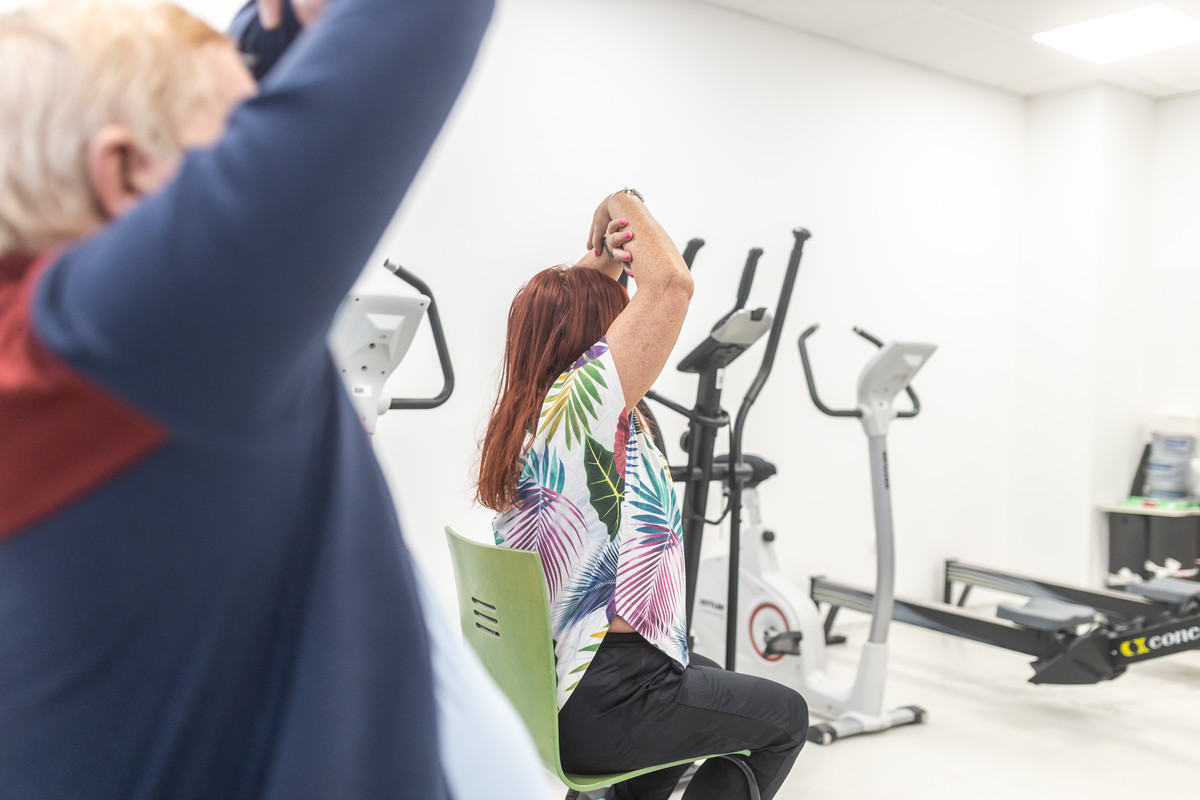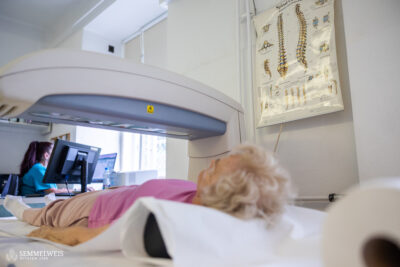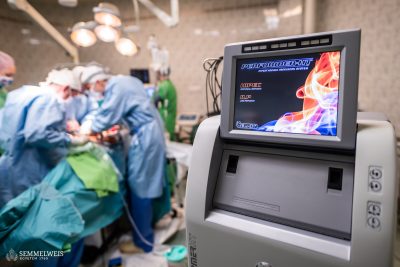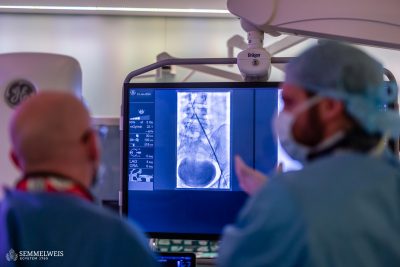Since its launch in May 2021, more than sixty patients have joined the Pulmonology Clinic’s post-COVID rehabilitation programme, with 8-10 patients participating in an ongoing two-week rotation. The participants, mostly people who had severe coronvirus disease, are enrolled after a complex assessment and can join a two-week hospital-led care programme, followed by three months of home rehabilitation.
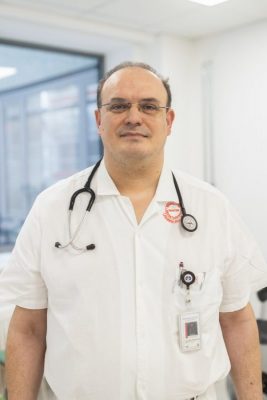 “Fatigue, breathing difficulties, significant loss of performance – these are the main symptoms experienced by patients coming to us from post-COVID outpatient clinics. In addition to these, there is evidence of residual respiratory function problems, with detectable signs on X-rays,” Dr. János Varga, Associate Professor at Semmelweis University’s Department of Pulmonology said. According to him, patients are admitted to the programme on the basis of a rehabilitation consultation.
“Fatigue, breathing difficulties, significant loss of performance – these are the main symptoms experienced by patients coming to us from post-COVID outpatient clinics. In addition to these, there is evidence of residual respiratory function problems, with detectable signs on X-rays,” Dr. János Varga, Associate Professor at Semmelweis University’s Department of Pulmonology said. According to him, patients are admitted to the programme on the basis of a rehabilitation consultation.
“Besides the physical examinations and laboratory results, we also check the patient’s maximum performance. For example, we perform a six-minute walking distance test and a cardio-pulmonary exercise test. We check the patient’s oxygen uptake and carbon dioxide output, we continuously record the ECG, detect the patient’s minute ventilation and whether there is a significant decrease in oxygen levels due to exercise. All these data help us to draw up an individualised rehabilitation programme,” he explained.
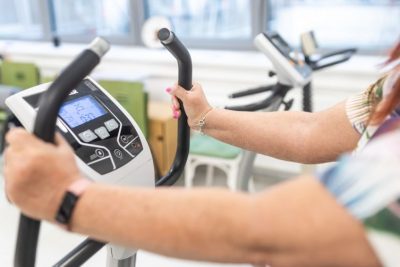 “In addition to the respiratory rehabilitation specialist, the team includes a physiotherapist, a dietician, a psychologist and, where appropriate, a social worker. The programme includes various chest physiotherapy procedures, such as breathing exercises, learning controlled breathing techniques, chest mobilization and individualised training programmes. We also carry out neuro-psychological assessment of patients’ cognitive function, and improvements in this area are also part of the programme,” he added.
“In addition to the respiratory rehabilitation specialist, the team includes a physiotherapist, a dietician, a psychologist and, where appropriate, a social worker. The programme includes various chest physiotherapy procedures, such as breathing exercises, learning controlled breathing techniques, chest mobilization and individualised training programmes. We also carry out neuro-psychological assessment of patients’ cognitive function, and improvements in this area are also part of the programme,” he added.
At the clinic, the focus is on patients with symptoms of a pulmonary nature, but there is screening for cognitive dysfunction and cardiac comorbidities associated with the disease as well.
“We often ask for a cardiology consultation when setting up a patient’s programme, and there are neuro-psychological development methods that we try to apply,” Dr. János Varga pointed out. As for the age range, he said that they are rehabilitating mostly patients aged 50-60, but there are also patients in their 30s and 40s.
In general, participants were very sick: some had been on ECMO, an artificial lung for more than 60 days, and many had been on mechanical ventilation for an extensive period. We treat participants who have even considered the possibility of a lung transplant”
– he stressed.
Once patients have mastered the elements of the programme during their hospital stay, they continue the rehabilitation at home.
“They will return in three months, when we repeat the initial ‘baseline’ measurements. What is clear from the experience so far is that there has been an increase in the patients’ performance – this is reflected in the maximum performance achieved both during the six-minute walking distance test and during the cardio-pulmonary exercise test. After the rehabilitation process, patients, including the aforementioned people who were in a very serious condition following the infection, reported a significant improvement in their quality of life. We can claim that they were able to recover with practically no or minimal residual symptoms, to return to their previous lives, and quite importantly, to their work,” summarised Dr. János Varga.
Éva Fekete-Obreczány
Translation: Viktória Kiss
Photo: Bálint Barta – Semmelweis University
Who is eligible and how can be included in the rehabilitation programme?
- Patients previously treated at the COVID department of Semmelweis University are admitted to the programme, based on a rehabilitation consultation.
- Patients who have had a COVID infection and experience long-term (3 months or longer) fatigue, dyspnoea, reduced physical performance may be referred for a rehabilitation consultation to the local pulmonary clinic. Based on the test results carried out during the consultation, the patient may be recommended for inclusion in the rehabilitation programme.
